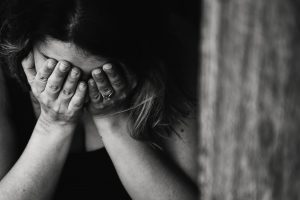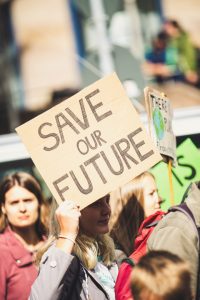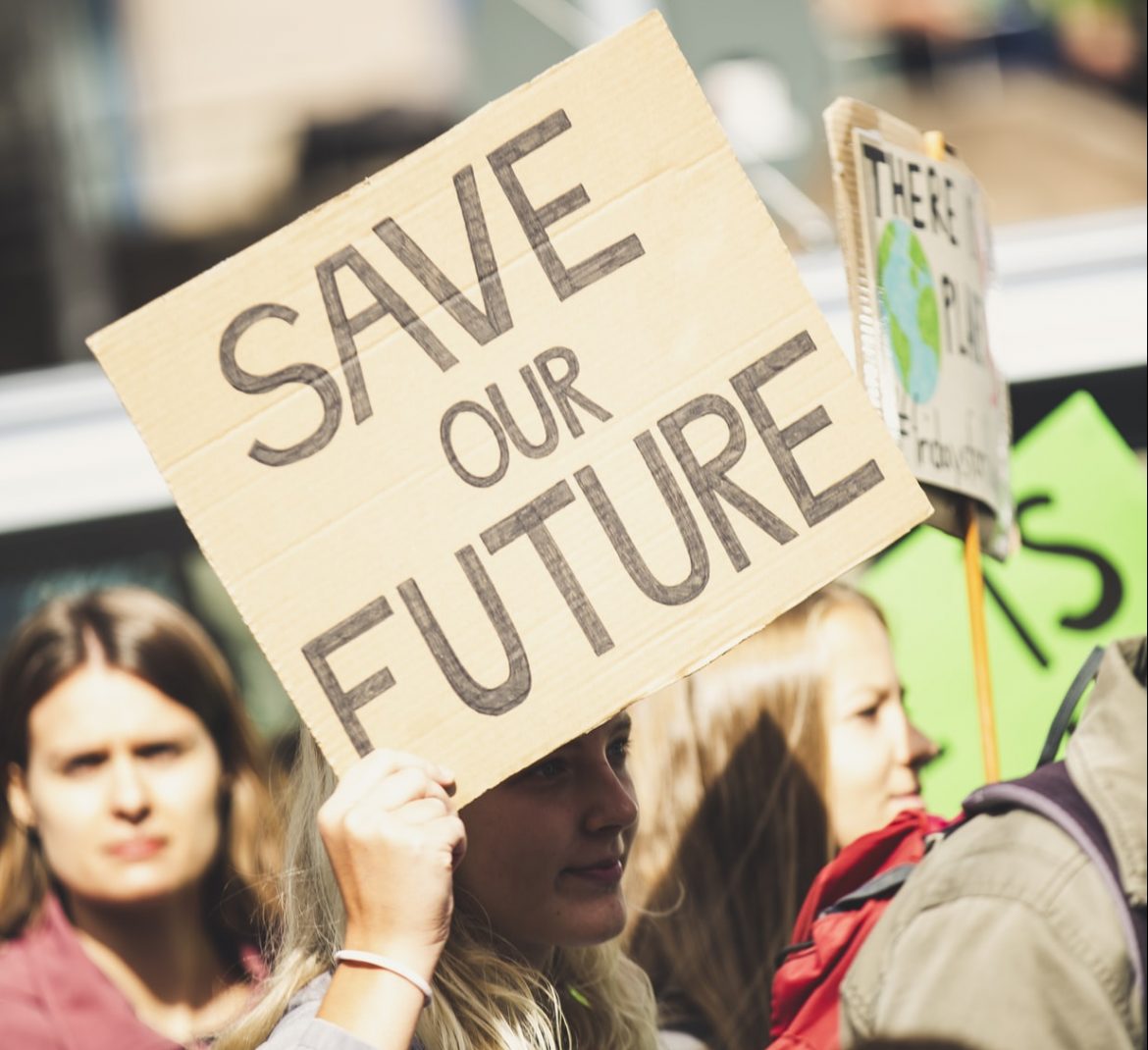According to my initial plan, this piece would not have been written. The original project included nine pieces: an introduction, and eight peeks into one area after another that the Coronavirus crisis has exposed for us to dig into, see what may have been hidden before, to understand better how we came to where we are, and to reflect on what we are now called to do.

From where I was before I started, as I look at my own journey through these pieces, I see this writing worked on me just as much as I worked on it. Initially, when the global The classic question of “where do you want to be in five years?” has within it the attempt to control the future. Conversely, going from here forwards in the direction of where we want to go, without knowing if we will ever get there, has the quality of shaping and co-creating…pandemic was declared in March, and before reaching the clarity about the writing, I went into paralysis, as I didn’t initially see anything I could do. I was gripped by the horror of what could happen, and by the prospect of the entire human project unravelling as we tear each other apart. I leaned on my core practices: mourning to bridge the gap between my vision and the reality around me; opening my heart through ongoing celebration of all that is; and resting in the humility of not knowing. That’s how I came to ask what was mine to do, and discovered the call to write what I initially thought would be one piece.
Once I started, it became nine pieces. Then I was approached by Özge Altýnkaya, before the first piece was posted, because she wanted to do a series of interviews with me, and most of the topics aligned with what was already in the plan for the series. Thus began the interview project that has followed the writing and deepened it.
These months have strengthened me in unexpected ways. Each of the pieces I’ve written has been empowering and disturbing, as I was forced from within to look ever deeper into the calamity that the last several thousand years has been for humanity and for the rest of life on the planet. Facing the immense grief that has arisen for me, time and again, has made me readier for the work I continue to be called to do.
At about the sixth part, the same place from which came the first nine topics made it clear within me that a tenth piece will need to be written. This is simply because there is one more topic that I feel called to address and am also fearful of touching: the degree of polarization that, like everything else I have written about in this series, has been there all along and has intensified and become more impossible to ignore since the appearance of the Coronavirus. I write about it, in large part, because I see this situation as an opportunity to integrate rather than escalate.
How do we know what we know?
So far, I have been studiously avoiding taking a public stand on any of what I talk about below, and I can’t write about polarization without saying where I stand. Given that, in this instance, the divergent opinions are cutting in unexpected lines, including within my circle of friends with whom I have had a high degree of alignment previously, this is scary business for me. I can imagine a whole host of people becoming upset with me, from more than one angle. Still, since nonviolence is based on the courage to speak truth with love and since, in my vision, and as I mentioned in my last piece, we humans come together across differences to find practical paths together regardless of ideological, political, and economic commitments, I am choosing to speak this publicly.
Perhaps this will surprise no one given all I have said about me: my fundamental position is one of humility and not knowing. This, for me, is a deep practice, not an evasion. On the very practical plane, I adopt what is called the precautionary principle. In terms of worldview, I remain with not knowing, and have been consistently choosing not to make it a priority to read many articles and try to form an opinion. My attention is focused elsewhere, and I am completely at peace, so far, with the choices I make with regards to moving around, where I stay, and how I relate to masks, all without needing to know what is causing the widespread disease raging in the world and what is, or isn’t, effective to respond to it. My interest is, rather, with how we deal with the fact that there is such controversy surrounding these questions.
In my university years, I engaged quite a bit with a branch of philosophy called epistemology, or theory of knowledge. I just looked up what is being said about this, and sadly found that only people who already understand philosophical categories would understand the standard definitions of this term, except in the simple English version of Wikipedia: “Epistemologists are philosophers who are interested in questions such as whether it is possible to have knowledge, what kind of knowledge there is, and how people come to know things.”
The Western intellectual project prides itself on having solved these deep questions through relying on the scientific method as the basis of truth, and relying on reason as the ultimate instrument of truth. This process has been questioned in the last few decades as the implicit propertied, white male who has always been the one doing the reasoning has been demoted from authority through critical theory projects coming from previously marginalized groups who were now standing up for their own knowledge making. With that came both complex and deep investigation into how social location affects what we see, hear, and think. In the crumbling of the so-called modernist worldview, what came into popular culture from there has all too often taken the form of what I see as a laissez-faire theory of knowledge that, in its simplest manifestation says there is no way to have any objective truth, and therefore anyone is free to believe whatever they want to believe. Another version of this same reaction to the oversimplified idea that there is an objective truth and scientists know how to get to it is the perspective that we can only know things based on our own experience.

This state of affairs creates a difficult choice for anyone who actually wants to engage, to seek truth, to build their knowledge, and to make sense of the world and know how to respond to it. It seems as though we have an either/or fork on the road. We either accept the “objective-truth” epistemology that claims objective truth exists and we just need to get better and better at knowing it, or we reject it and are left with what one academic author called “intellectual deregulation.” Since many people are extremely uncomfortable with the idea of having nothing outside themselves to ground their claims to know anything, many people end up choosing some version of scientific truth as the basis of knowledge even while knowing its extreme limitations.
A few weeks ago, I had a moment of an epiphany in which I saw a third possibility that I could land in. It was shortly after a very rich conversation on one of my coaching calls when I walked with someone through the extreme discomfort of having the reliance on science as the ultimate authority shaken out of them, and having nothing else to offer. The depth of that conversation might have been the catalyst for this epiphany: that the third source of knowledge comes from people coming together, on the most practical plane, to solve real problems that affect them and, in the process, enter the transformative field of mutual influencing. This happens, I believe, both at the level of needs and imagined solutions, and, also, at the level of what ends up being believed about the situation and life overall. I even thought I was coining a term when I thought of this as relational epistemology. Then, in writing this piece, I looked up this term, and discovered, without being surprised, that it refers to indigenous ways of knowing, which are based on relational processes.
Patriarchal living disturbed these processes to such a degree that we learned to rely on external authority to derive knowledge, instead of being part of creating it with each other as we live our interconnected lives. I can completely see that, in reference to what may have seemed to many to be arbitrary authorities, the process of scientific research could easily appear as liberation from the shackles of tyrannical authority.
Relational epistemology, if I understand what others may also mean by it, de-privileges the individual as the place where knowledge “happens” and locates knowledge creation in the web of relationships, including beyond the human.
Relational epistemology relies on trust, because in order to be influenced by anything outside ourselves, we need to be open to it. Especially in relation to other humans, we would need to trust the intentions and the capacity of others before we would open to being affected by what we hear from them. This trust is one of the things that patriarchy has taken away from us. The very same Western project of reason has within it quite remarkably negative views of human nature. The social contract, that imaginary construct on which liberal democracy is based, is about how to create a society that functions at all when the starting point is solitary and self-interested individuals. It’s such a far cry from the generosity and togetherness that are assumed within the indigenous worldview, that I could weep just thinking about that.
Instead of each other and life, we were reduced to trusting external authorities, those with powers that emanated from their capacity to accumulate resources. Now, more and more so in the last period, as trust in authorities is extremely low, there’s nothing left to trust.
This is one of the ways I understand the immense pull of many narratives that now circulate everywhere, which call into question everything. While I, too, pride myself on questioning everything, my questioning is of the systems, the habits, the stories, and the underlying worldview that our current ways of living rest on. I do not tend to attribute evil to specific individuals the way so much that is spoken of today does. In the US, this happens both on the right and on the left.
Can we address the Coronavirus crisis differently?
When Joe Biden was elected and spoke of unity and of being a president for all the people in the US, not only for those who elected him, I reached out to people I knew, and also had someone reach out to me in parallel, looking for connections that would allow me to present a proposal for the transition team about how they could go for unity. Just like the work I did in Minnesota some years ago about child custody legislation, I would have supported the transition team in bringing together people from across the many divides about how to address the current health crisis in the US. I was deeply saddened to see that instead, and while talking about unity, Biden spoke of mandating masks across the board. I was saddened not because of my own views about the masks. Like I said earlier, I am accepting my inability to know, my practice is simple, and in some significant way, my life has not been deeply affected by the pandemic itself. I was saddened because of the lost opportunity to come together. For those who didn’t vote for Biden, taking a stand, immediately, on one of the most charged controversies in the US all while saying he is seeking unity would not generate any more trust, only cynicism.
Had I been successful in presenting my offering to the transition team, I would support them in making an entirely different choice. In addition to epidemiologists and others with relevant scientific credentials, I would urge them to bring together randomly selected people representing different experiences. For example, I would want the taskforce to include some people who have suffered immensely from the disease, personally or through losing people dear to them; some people who have suffered immensely from the responses to the disease, most especially workers who lost jobs, small business owners who lost their livelihoods, and others; some who are seeing the masks and the imminent vaccine as threats to their personal liberties; and some who are profoundly concerned about what is unfolding, seeing masks and vaccines as a concerted effort, an assault on what it means to be human, or even a beginning chapter in mass genocide; and I would seek to identify other groups that might have specific divergent views.
This would be both a trust building effort and an opportunity to gain wisdom. My goal would be to arrive at a strategy to go forward with attending to the health crisis that would be mutually arrived at by the resulting multi-stakeholder group. Everything I know and believe about such processes suggests that the commitment to a solution that works for all and that integrates divergence can have dramatically positive results. Key to such a possibility is the initial choice not to force any strategy on large portions of the population, nor to settle for a compromise. This is what I see as Biden’s deep error, not his views. Only a commitment to a transformative process runs a chance of working. This means taking into considerations all the needs and supporting those selected to hold everyone’s needs with the care necessary to dissolve the hardened armors protecting their own hearts and come, again, into the collaborative evolutionary makeup we have withdrawn from. Only then would we be able to say, at least, that we know something, together.
Where next?
So far, my attempts to find a way to break through to a larger sphere of influence have failed. This includes the two I spoke about in my previous piece about finding collective wisdom, and the one I just mentioned about aiming to reach the Biden transition team.
These are not the only failed attempts. When I worked, almost without money, for almost three years on the Minnesota child custody legislation project, I was quite confident that, if successful, this project would open many doors and bring the transformative processes I have developed to the public sphere. Nothing like this happened.
I then did a similar project on child labor research, in which the people I facilitated: from the UN, academics, NGO representatives, and others came up with fifteen principles and over twenty research agenda items they all agreed on within three days after many years of a stalemate. Again, I believed it would be an opening, and nothing happened. Time and time again, despite positive feedback from many, and despite a real track record of having proof of concept, I am unable to dramatically expand my sphere of influence.
As I am winding down this series, I want to conclude with some thoughts of where this leaves me, and how I keep choosing what is mine to do. These are thoughts about what is usually called a theory of change. Usually, a theory of change begins with the desired outcomes, mapping them backwards into what needs to happen next and what would be the most effective way to achieve those goals.
In the months before and during the current pandemic, I have come to question the very concept and its context. As part of this process, I realized that the very idea that we can linearly define a goal, and then the steps that will take us there, has control strewn all over it. I can no longer settle for using methods that rely on control to solve problems that are themselves the result of the paradigm of control that patriarchy brought to us. In this case, I am referring to the obsession with control, rationality, and linearity, especially evident since patriarchy has taken the form of relying on science and progress, and doing so in tandem with developing capitalism, along with its colonial and white supremacist projects. These phenomena have brought us superbugs, climate change, war, and alienation. I cannot see how that same thinking will get us out of here.
Instead, I came to see that what I have been doing for years now is not a deficient process which I would continue until I “fixed” it and found a robust enough theory of change. Rather, it seems to me that grounding my choices in the eternal humility of not knowing is my (non-linear) theory of change, emerging from recognizing that we can’t know a linear path leading to the kind of system change I believe all who read my writings are longing for.
Not knowing means engaging forwards from where we are towards where we want to go rather than backwards from where we want to get to. The classic question of “where do you want to be in five years?” has within it the attempt to control the future. Conversely, going from here forwards in the direction of where we want to go, without knowing if we will ever get there, has the quality of shaping and co-creating rather than controlling. It’s about discernment, integrity, and rigor in conditions of inherent uncertainty, using all available information while surrendering to intuition and to the flow of life, and hence with utter humility about results. This, paradoxically, can make us more nimble in our capacity to adapt while living in an eternal question: In this moment, knowing what we know about context, conditions, needs, impacts, and resources, with the overall purpose we have, and with the values we hold, what is the most transformative action possible? That same question can be applied by an individual, a family, a team, an organization, or any other entity committed to change.
This process includes living our vision now through the intense practice of aligning means with ends. Simultaneously, it includes moving towards the vision through actions that emerge from the deepest discernment that we have about what has a chance of moving in that direction, what is next. This practice doesn’t create the change. It only makes us ready and more available for the non-linear moments, like the current pandemic, in which the flow of unfolding of what is gets disrupted, creating a sudden enhancement of possibilities.
This focus on current action preparing us for seizing opportunities was already present in the Communist Manifesto. Despite however often we fail to seize the opportunity, such as the fall of the Berlin Wall, when we didn’t know how to stop the rush of capitalism into the pregnant opening that was hovering for a while, the possibility remains. Will we be ready this time? Will at least some of us find a way to collectively turn again towards life and co-create with it, rather than move away from it and attempt to control it? This, in itself, is part of what we can begin to live now in how we orient towards the vision and the change we want to see in this difficult time.

This, then, is part of my personal answer to these deep questions: part of what I am called to do, now more than ever, is to paint a picture of what I see as possible; what a future aligned with our evolutionary makeup can be; and what we can do, individually and collectively, to increase the chances of getting there. Part storyteller, part designer, part coach, and part simply a person given the gift of both vision and practicality, theory and practice, big picture and details, linear thinking and intuition, conceptual clarity and immense care, I am dedicating the rest of my days to putting into writing, and practice, as much of what I have come to believe makes a future possible. It’s all I know to do, and I am awed by the fact that more and more people are listening.
—————————————————————–
Note : This post includes modified sections from my chapter in the anthology Life After COVID-19: the Other Side of Crisis, published in August 2020 by Bristol University Press, edited by Martin Parker.
PHOTO CREDITS
SAVE OUR FUTURE. Global climate change strike – No Planet B – 09-20-2019 – Photo by Markus Spiske on Unsplash
Photo by tro-kilinochchii on FLickr
